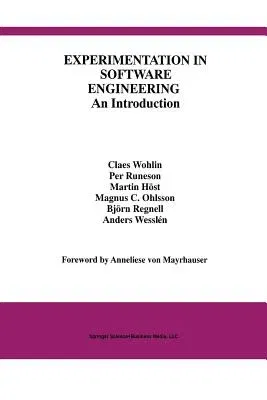Claes Wohlin
(Author)Experimentation in Software Engineering: An Introduction (Softcover Reprint of the Original 1st 2000)Paperback - Softcover Reprint of the Original 1st 2000, 28 October 2012

Qty
1
Turbo
Ships in 2 - 3 days
In Stock
Free Delivery
Cash on Delivery
15 Days
Free Returns
Secure Checkout
Part of Series
International Software Engineering
Part of Series
International Series in Software Engineering
Print Length
204 pages
Language
English
Publisher
Springer
Date Published
28 Oct 2012
ISBN-10
1461370914
ISBN-13
9781461370918
Description
Product Details
Book Edition:
Softcover Reprint of the Original 1st 2000
Book Format:
Paperback
Country of Origin:
NL
Date Published:
28 October 2012
Dimensions:
23.39 x
15.6 x
1.22 cm
ISBN-10:
1461370914
ISBN-13:
9781461370918
Language:
English
Location:
New York, NY
Pages:
204
Publisher:
Weight:
326.59 gm

